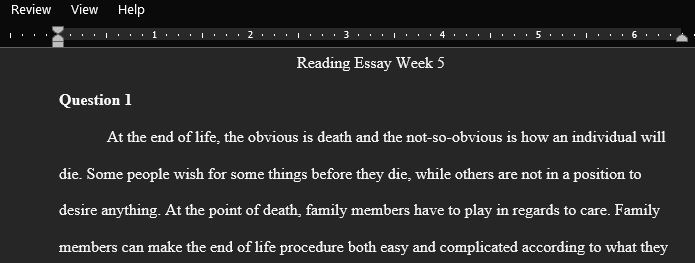What really matters at the end of life
What Really Matters at the End of Life?
1. Galanti notes that the roles of men and women in this country are not shared from the ideological perspective among all people groups. The roles of family members can be diverse and complicated encounters, from birth to death and all points in between. Persons at or near the end of life are an extremely vulnerable population. Dying and death are processes dependent on the meanings held by the individual, the family, or the community within the context of the culture. For non-medical persons, the predominant orientation to death is one of human experience, an inevitable and inescapable conclusion of living. Conversely, healthcare providers view death as a medical failure. When the focus is on the disease and the cure, not care; not the patient then the healthcare encounter is affected. How do you manage the obvious and the not-so-obvious?
2. Discuss the Culture Care Theory as a tool to discover what is important to people groups at end-of-life. Think of the theoretical model as a tool to assess the cultural needs of patients – what might be important to provide culturally competent care. By applying the theoretical model explain how the model is the appropriate choice for a people group, and discuss the strengths and any weaknesses of the model.
Answer preview for What really matters at the end of life
Access the full answer containing 574 words by clicking the below purchase button.

